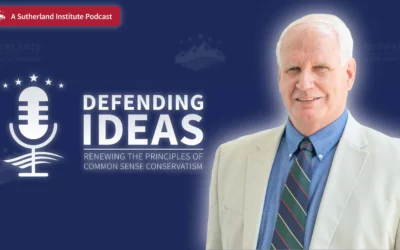
Written by William C. Duncan
January 26, 2021
With a new administration, every action the president takes is scrutinized for its predictive value. After President Joe Biden’s inaugural address, for instance, countless talking heads sought to prognosticate on its implication for how his administration will govern. What did his message of national unity mean for the policies that his administration will pursue?
On the subject of religious freedom, we have little data from the first week of the Biden administration to make such predictions. What we do have points to reasons for concern that religious freedom may be a lower priority, but also glimmerings of hope that these concerns may prove unfounded.
The key data point is the president’s executive order announcing the government’s interpretation of the term “sex” in federal discrimination laws to include sexual orientation and gender identity. This is a significant extension of a Supreme Court decision that construed the employment discrimination provision of the 1964 Civil Rights Act to include these categories.
On its face, this interpretation does not seem to implicate religious freedom, but as the Supreme Court predicted in its decision, the expansive reinterpretation is likely to impact religious groups. For instance, the executive order directs government agencies enforcing Title IX, the law prohibiting sex discrimination in education, to enforce the new interpretation on schools; this will include requiring sex-specific facilities like locker rooms and showers to be accessed based on gender identity rather than biological sex.
For schools with a religious mission, this could create a quandary when the religious teachings governing the schools’ operations include sexual modesty and a belief that biological sex is part of God’s created order.
Similarly, many religious schools require students, faculty and employees to maintain standards rooted in their faith, such as requirements that sexual activity be reserved only to husbands and wives in marriage.
Under the prior understanding of Title IX, religious schools were unlikely to violate that law since few (if any) schools had underlying religious standards that would disadvantage women or men as a group. The inclusion of classes based on sexual identification or sexual attractions changes the dynamic. A school that had scrupulously ensured women were not disadvantaged in academic opportunities or other programs might well feel it cannot ignore sex differences in housing or locker rooms or accept a definition of marriage that includes same-sex couples.
When the Supreme Court noted these types of concerns, it suggested that the religious freedom implications could be worked out in future lawsuits, but the threat and expense of lawsuits creates a potential “chilling effect” on groups that may choose to avoid the risk altogether rather than expending resources to vindicate their free exercise rights. It would be far more responsible to try to avoid potential conflicts within the executive order itself or, better yet, to enact both the sweeping change and the needed exemptions in legislation where various interests and rights can be more effectively balanced.
An illustration of how the legal process can be a form of punishment is the longstanding litigation involving the Little Sisters of the Poor, an order of Catholic nuns who provide charitable care to the elderly poor. The Little Sisters were required by a mandate from the Department of Health and Human Services to offer contraceptive coverage to their employees even though doing so would be contrary to their religious beliefs.
Their legal challenge to this requirement has been through the federal courts system twice, resulting in two decisions from the U.S. Supreme Court, and is not entirely finished even now. Why not? Because the current protection they have against being required to act against their conscience is a Trump administration regulation that could be changed by another shift in legal rules by the new administration.
Biden’s choice to lead the Department of Health and Services is Xavier Becerra, who has expressed some hostility toward nonprofits, including religious charities. That leads to a worry that the HHS could work to remove the legal protections the Little Sisters rely on to operate in accordance with their faith.
The glimmer of hope in all of this is how very easy it would be for the administration to avoid religious freedom conflicts altogether. In the case of the Little Sisters and similar organizations, the administration need only retain the current protections for religious groups. Ideally, though, the administration could work with Congress to enact legislation to advance its goals and include in that legislation reasonable accommodations of religious practice. Indeed, it would be simple for the administration to avoid creating legal conflicts with the free exercise rights of religious charities, schools and other organizations, but doing so will require attention and effort.
Biden closed his inaugural address with what he called a “sacred oath,” including a commitment that “together, we shall write an American story of hope, not fear. Of unity, not division. Of light, not darkness. An American story of decency and dignity.” Expending the effort to avoid legal conflicts with religious freedom in administration policy decisions would go far toward advancing the president’s aspiration and promise of national unity. He should use the opportunity of the opening months of his administration to do so.
More Insights
Read More
Protecting property rights against government overreach
While governments can continue to regulate land use, these regulations and fees must be justified by a government interest and proportional to the effect of the development’s impact on that interest.
Do we need to care about the Utah State Board of Education?
For any Utah voters who also feel like K-12 public education is headed in the wrong direction, learning about the candidates running for a seat on the Utah State Board of Education (USBE) is a wise choice this election season.
Defending education choice the right way
Education choice has exploded in popularity across the nation in recent years. So why does it remain a contentious point of debate in some parts of the country?


